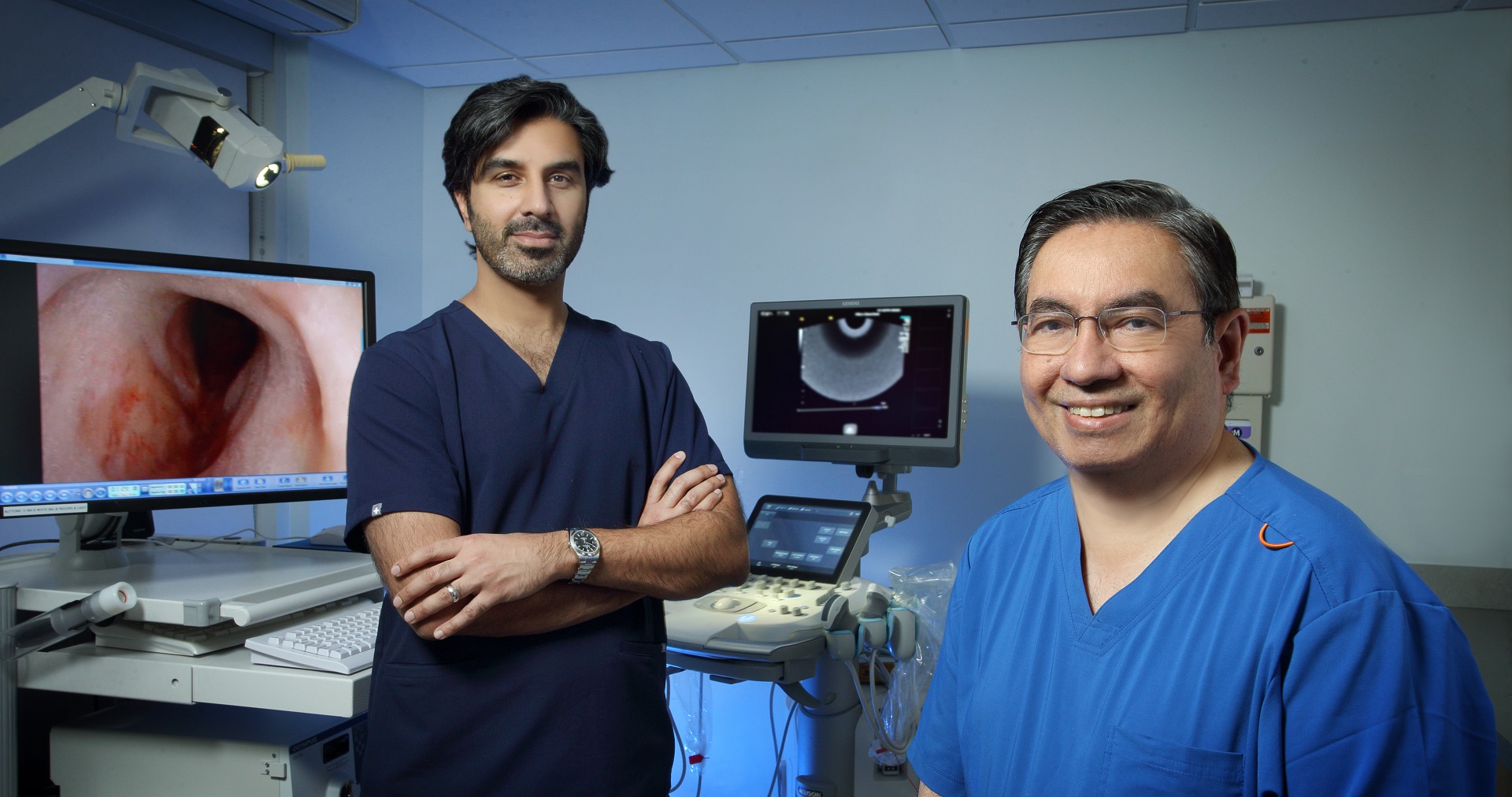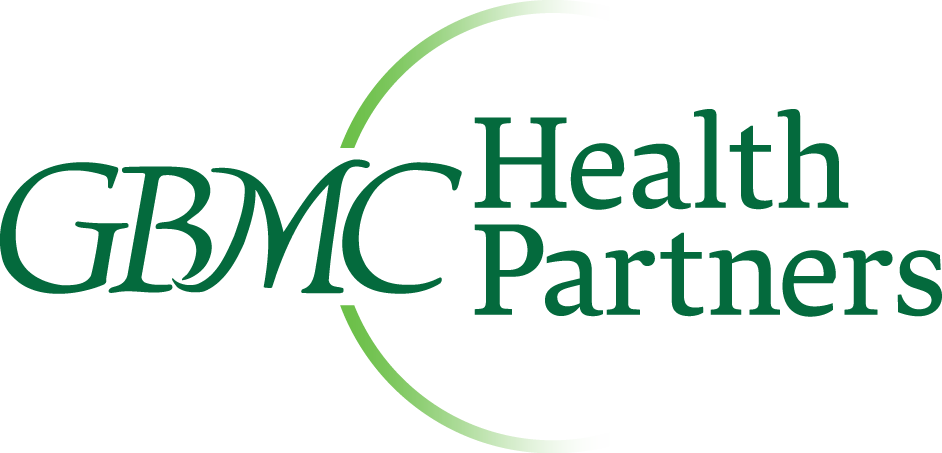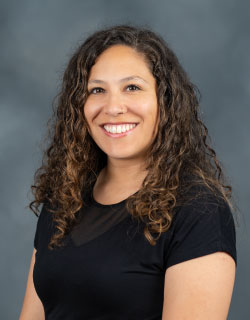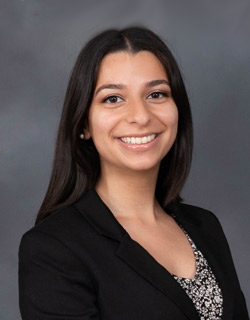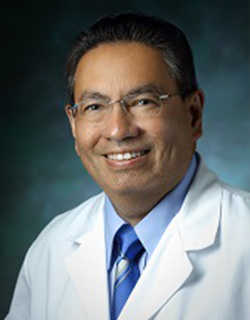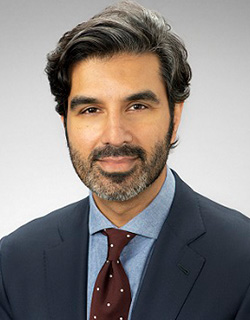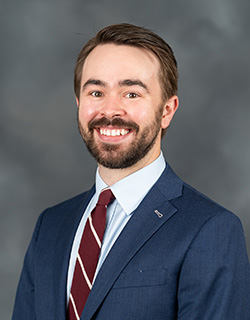Error message
Warning: unserialize(): Error at offset 0 of 62 bytes in Drupal\hg_features\Controller\APIController->export() (line 527 of modules/custom/hg_features/src/Controller/APIController.php).
Drupal\hg_features\Controller\APIController->export() (Line: 249) Drupal\hg_features\Controller\ContentAPIController->export() (Line: 461) Drupal\hg_features\Controller\NodeAPIController->export() (Line: 403) Drupal\hg_features\Controller\APIController->export() (Line: 249) Drupal\hg_features\Controller\ContentAPIController->export() (Line: 461) Drupal\hg_features\Controller\NodeAPIController->export() (Line: 916) Drupal\hg_features\Controller\NodeAPIController->list() (Line: 450) Drupal\hg_mercury_card\Plugin\Block\ContentFeedBlock->__construct() (Line: 718) Drupal\hg_mercury_card\Plugin\Block\ContentFeedBlock::create() (Line: 21) Drupal\Core\Plugin\Factory\ContainerFactory->createInstance() (Line: 76) Drupal\Component\Plugin\PluginManagerBase->createInstance() (Line: 62) Drupal\Core\Plugin\DefaultSingleLazyPluginCollection->initializePlugin() (Line: 57) Drupal\block\BlockPluginCollection->initializePlugin() (Line: 80) Drupal\Component\Plugin\LazyPluginCollection->get() (Line: 45) Drupal\block\BlockPluginCollection->get() (Line: 88) Drupal\Core\Plugin\DefaultSingleLazyPluginCollection->setConfiguration() (Line: 104) Drupal\Core\Plugin\DefaultSingleLazyPluginCollection->addInstanceId() (Line: 55) Drupal\Core\Plugin\DefaultSingleLazyPluginCollection->__construct() (Line: 34) Drupal\block\BlockPluginCollection->__construct() (Line: 158) Drupal\block\Entity\Block->getPluginCollection() (Line: 147) Drupal\block\Entity\Block->getPlugin() (Line: 118) Drupal\block\BlockAccessControlHandler->checkAccess() (Line: 109) Drupal\Core\Entity\EntityAccessControlHandler->access() (Line: 329) Drupal\Core\Entity\EntityBase->access() (Line: 63) Drupal\block\BlockRepository->getVisibleBlocksPerRegion() (Line: 138) Drupal\block\Plugin\DisplayVariant\BlockPageVariant->build() (Line: 270) Drupal\Core\Render\MainContent\HtmlRenderer->prepare() (Line: 128) Drupal\Core\Render\MainContent\HtmlRenderer->renderResponse() (Line: 90) Drupal\Core\EventSubscriber\MainContentViewSubscriber->onViewRenderArray() call_user_func() (Line: 111) Drupal\Component\EventDispatcher\ContainerAwareEventDispatcher->dispatch() (Line: 186) Symfony\Component\HttpKernel\HttpKernel->handleRaw() (Line: 76) Symfony\Component\HttpKernel\HttpKernel->handle() (Line: 53) Drupal\Core\StackMiddleware\Session->handle() (Line: 48) Drupal\Core\StackMiddleware\KernelPreHandle->handle() (Line: 28) Drupal\Core\StackMiddleware\ContentLength->handle() (Line: 201) Drupal\page_cache\StackMiddleware\PageCache->fetch() (Line: 138) Drupal\page_cache\StackMiddleware\PageCache->lookup() (Line: 87) Drupal\page_cache\StackMiddleware\PageCache->handle() (Line: 48) Drupal\Core\StackMiddleware\ReverseProxyMiddleware->handle() (Line: 51) Drupal\Core\StackMiddleware\NegotiationMiddleware->handle() (Line: 36) Drupal\Core\StackMiddleware\AjaxPageState->handle() (Line: 51) Drupal\Core\StackMiddleware\StackedHttpKernel->handle() (Line: 741) Drupal\Core\DrupalKernel->handle() (Line: 19)
Warning: unserialize(): Error at offset 0 of 205 bytes in Drupal\hg_features\Controller\APIController->export() (line 527 of modules/custom/hg_features/src/Controller/APIController.php).
Drupal\hg_features\Controller\APIController->export() (Line: 249) Drupal\hg_features\Controller\ContentAPIController->export() (Line: 461) Drupal\hg_features\Controller\NodeAPIController->export() (Line: 916) Drupal\hg_features\Controller\NodeAPIController->list() (Line: 450) Drupal\hg_mercury_card\Plugin\Block\ContentFeedBlock->__construct() (Line: 718) Drupal\hg_mercury_card\Plugin\Block\ContentFeedBlock::create() (Line: 21) Drupal\Core\Plugin\Factory\ContainerFactory->createInstance() (Line: 76) Drupal\Component\Plugin\PluginManagerBase->createInstance() (Line: 62) Drupal\Core\Plugin\DefaultSingleLazyPluginCollection->initializePlugin() (Line: 57) Drupal\block\BlockPluginCollection->initializePlugin() (Line: 80) Drupal\Component\Plugin\LazyPluginCollection->get() (Line: 45) Drupal\block\BlockPluginCollection->get() (Line: 88) Drupal\Core\Plugin\DefaultSingleLazyPluginCollection->setConfiguration() (Line: 104) Drupal\Core\Plugin\DefaultSingleLazyPluginCollection->addInstanceId() (Line: 55) Drupal\Core\Plugin\DefaultSingleLazyPluginCollection->__construct() (Line: 34) Drupal\block\BlockPluginCollection->__construct() (Line: 158) Drupal\block\Entity\Block->getPluginCollection() (Line: 147) Drupal\block\Entity\Block->getPlugin() (Line: 118) Drupal\block\BlockAccessControlHandler->checkAccess() (Line: 109) Drupal\Core\Entity\EntityAccessControlHandler->access() (Line: 329) Drupal\Core\Entity\EntityBase->access() (Line: 63) Drupal\block\BlockRepository->getVisibleBlocksPerRegion() (Line: 138) Drupal\block\Plugin\DisplayVariant\BlockPageVariant->build() (Line: 270) Drupal\Core\Render\MainContent\HtmlRenderer->prepare() (Line: 128) Drupal\Core\Render\MainContent\HtmlRenderer->renderResponse() (Line: 90) Drupal\Core\EventSubscriber\MainContentViewSubscriber->onViewRenderArray() call_user_func() (Line: 111) Drupal\Component\EventDispatcher\ContainerAwareEventDispatcher->dispatch() (Line: 186) Symfony\Component\HttpKernel\HttpKernel->handleRaw() (Line: 76) Symfony\Component\HttpKernel\HttpKernel->handle() (Line: 53) Drupal\Core\StackMiddleware\Session->handle() (Line: 48) Drupal\Core\StackMiddleware\KernelPreHandle->handle() (Line: 28) Drupal\Core\StackMiddleware\ContentLength->handle() (Line: 201) Drupal\page_cache\StackMiddleware\PageCache->fetch() (Line: 138) Drupal\page_cache\StackMiddleware\PageCache->lookup() (Line: 87) Drupal\page_cache\StackMiddleware\PageCache->handle() (Line: 48) Drupal\Core\StackMiddleware\ReverseProxyMiddleware->handle() (Line: 51) Drupal\Core\StackMiddleware\NegotiationMiddleware->handle() (Line: 36) Drupal\Core\StackMiddleware\AjaxPageState->handle() (Line: 51) Drupal\Core\StackMiddleware\StackedHttpKernel->handle() (Line: 741) Drupal\Core\DrupalKernel->handle() (Line: 19)
Warning: unserialize(): Error at offset 0 of 62 bytes in Drupal\hg_features\Controller\APIController->export() (line 527 of modules/custom/hg_features/src/Controller/APIController.php).
Drupal\hg_features\Controller\APIController->export() (Line: 249) Drupal\hg_features\Controller\ContentAPIController->export() (Line: 461) Drupal\hg_features\Controller\NodeAPIController->export() (Line: 403) Drupal\hg_features\Controller\APIController->export() (Line: 249) Drupal\hg_features\Controller\ContentAPIController->export() (Line: 461) Drupal\hg_features\Controller\NodeAPIController->export() (Line: 916) Drupal\hg_features\Controller\NodeAPIController->list() (Line: 450) Drupal\hg_mercury_card\Plugin\Block\ContentFeedBlock->__construct() (Line: 718) Drupal\hg_mercury_card\Plugin\Block\ContentFeedBlock::create() (Line: 21) Drupal\Core\Plugin\Factory\ContainerFactory->createInstance() (Line: 76) Drupal\Component\Plugin\PluginManagerBase->createInstance() (Line: 62) Drupal\Core\Plugin\DefaultSingleLazyPluginCollection->initializePlugin() (Line: 57) Drupal\block\BlockPluginCollection->initializePlugin() (Line: 80) Drupal\Component\Plugin\LazyPluginCollection->get() (Line: 45) Drupal\block\BlockPluginCollection->get() (Line: 88) Drupal\Core\Plugin\DefaultSingleLazyPluginCollection->setConfiguration() (Line: 104) Drupal\Core\Plugin\DefaultSingleLazyPluginCollection->addInstanceId() (Line: 55) Drupal\Core\Plugin\DefaultSingleLazyPluginCollection->__construct() (Line: 34) Drupal\block\BlockPluginCollection->__construct() (Line: 158) Drupal\block\Entity\Block->getPluginCollection() (Line: 147) Drupal\block\Entity\Block->getPlugin() (Line: 118) Drupal\block\BlockAccessControlHandler->checkAccess() (Line: 109) Drupal\Core\Entity\EntityAccessControlHandler->access() (Line: 329) Drupal\Core\Entity\EntityBase->access() (Line: 63) Drupal\block\BlockRepository->getVisibleBlocksPerRegion() (Line: 138) Drupal\block\Plugin\DisplayVariant\BlockPageVariant->build() (Line: 270) Drupal\Core\Render\MainContent\HtmlRenderer->prepare() (Line: 128) Drupal\Core\Render\MainContent\HtmlRenderer->renderResponse() (Line: 90) Drupal\Core\EventSubscriber\MainContentViewSubscriber->onViewRenderArray() call_user_func() (Line: 111) Drupal\Component\EventDispatcher\ContainerAwareEventDispatcher->dispatch() (Line: 186) Symfony\Component\HttpKernel\HttpKernel->handleRaw() (Line: 76) Symfony\Component\HttpKernel\HttpKernel->handle() (Line: 53) Drupal\Core\StackMiddleware\Session->handle() (Line: 48) Drupal\Core\StackMiddleware\KernelPreHandle->handle() (Line: 28) Drupal\Core\StackMiddleware\ContentLength->handle() (Line: 201) Drupal\page_cache\StackMiddleware\PageCache->fetch() (Line: 138) Drupal\page_cache\StackMiddleware\PageCache->lookup() (Line: 87) Drupal\page_cache\StackMiddleware\PageCache->handle() (Line: 48) Drupal\Core\StackMiddleware\ReverseProxyMiddleware->handle() (Line: 51) Drupal\Core\StackMiddleware\NegotiationMiddleware->handle() (Line: 36) Drupal\Core\StackMiddleware\AjaxPageState->handle() (Line: 51) Drupal\Core\StackMiddleware\StackedHttpKernel->handle() (Line: 741) Drupal\Core\DrupalKernel->handle() (Line: 19)
Warning: unserialize(): Error at offset 0 of 166 bytes in Drupal\hg_features\Controller\APIController->export() (line 527 of modules/custom/hg_features/src/Controller/APIController.php).
Drupal\hg_features\Controller\APIController->export() (Line: 249) Drupal\hg_features\Controller\ContentAPIController->export() (Line: 461) Drupal\hg_features\Controller\NodeAPIController->export() (Line: 916) Drupal\hg_features\Controller\NodeAPIController->list() (Line: 450) Drupal\hg_mercury_card\Plugin\Block\ContentFeedBlock->__construct() (Line: 718) Drupal\hg_mercury_card\Plugin\Block\ContentFeedBlock::create() (Line: 21) Drupal\Core\Plugin\Factory\ContainerFactory->createInstance() (Line: 76) Drupal\Component\Plugin\PluginManagerBase->createInstance() (Line: 62) Drupal\Core\Plugin\DefaultSingleLazyPluginCollection->initializePlugin() (Line: 57) Drupal\block\BlockPluginCollection->initializePlugin() (Line: 80) Drupal\Component\Plugin\LazyPluginCollection->get() (Line: 45) Drupal\block\BlockPluginCollection->get() (Line: 88) Drupal\Core\Plugin\DefaultSingleLazyPluginCollection->setConfiguration() (Line: 104) Drupal\Core\Plugin\DefaultSingleLazyPluginCollection->addInstanceId() (Line: 55) Drupal\Core\Plugin\DefaultSingleLazyPluginCollection->__construct() (Line: 34) Drupal\block\BlockPluginCollection->__construct() (Line: 158) Drupal\block\Entity\Block->getPluginCollection() (Line: 147) Drupal\block\Entity\Block->getPlugin() (Line: 118) Drupal\block\BlockAccessControlHandler->checkAccess() (Line: 109) Drupal\Core\Entity\EntityAccessControlHandler->access() (Line: 329) Drupal\Core\Entity\EntityBase->access() (Line: 63) Drupal\block\BlockRepository->getVisibleBlocksPerRegion() (Line: 138) Drupal\block\Plugin\DisplayVariant\BlockPageVariant->build() (Line: 270) Drupal\Core\Render\MainContent\HtmlRenderer->prepare() (Line: 128) Drupal\Core\Render\MainContent\HtmlRenderer->renderResponse() (Line: 90) Drupal\Core\EventSubscriber\MainContentViewSubscriber->onViewRenderArray() call_user_func() (Line: 111) Drupal\Component\EventDispatcher\ContainerAwareEventDispatcher->dispatch() (Line: 186) Symfony\Component\HttpKernel\HttpKernel->handleRaw() (Line: 76) Symfony\Component\HttpKernel\HttpKernel->handle() (Line: 53) Drupal\Core\StackMiddleware\Session->handle() (Line: 48) Drupal\Core\StackMiddleware\KernelPreHandle->handle() (Line: 28) Drupal\Core\StackMiddleware\ContentLength->handle() (Line: 201) Drupal\page_cache\StackMiddleware\PageCache->fetch() (Line: 138) Drupal\page_cache\StackMiddleware\PageCache->lookup() (Line: 87) Drupal\page_cache\StackMiddleware\PageCache->handle() (Line: 48) Drupal\Core\StackMiddleware\ReverseProxyMiddleware->handle() (Line: 51) Drupal\Core\StackMiddleware\NegotiationMiddleware->handle() (Line: 36) Drupal\Core\StackMiddleware\AjaxPageState->handle() (Line: 51) Drupal\Core\StackMiddleware\StackedHttpKernel->handle() (Line: 741) Drupal\Core\DrupalKernel->handle() (Line: 19)
Head and Neck Surgery
Advanced surgical skill from experienced specialists
Head and Neck Surgery, located in the GBMC Milton J. Dance, Jr. Head and Neck Center, offers access to experienced specialists in organ preservation, microvascular surgery, minimally invasive techniques and voice rehabilitation. Our integrated practice is dedicated to caring for patients in a healing environment, with comprehensive programs and services that emphasize the highest level of comfort and convenience.
Head and Neck Surgery treats cancers and benign tumors of the:
- Oral cavity
- Pharynx
- Larynx
- Salivary glands
- Thyroid and parathyroid glands
- Skull base
- Neck
- Jaw
- Sinuses
- Skin (melanoma, non-melanoma skin cancers)
All new patients are seen by a surgeon quickly to expedite care and all cases of advanced malignancy are presented at a weekly head and neck tumor board conference for multidisciplinary consensus.
A proven advance in technology, applied to head and neck surgery.
GBMC's da Vinci Surgical System incorporates the latest advances in robotics and computer technology to bring our surgeons a sophisticated new tool. We use this minimally invasive, robotic surgical approach, Trans Oral Robotic Surgery (TORS), for surgical procedures to treat benign and malignant tumors in adults.
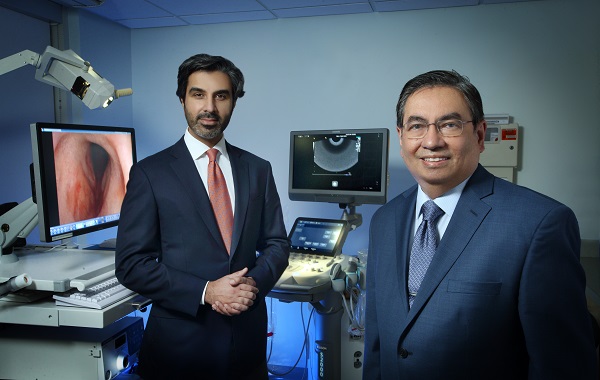
Request a Clinic Appointment
Our head and neck surgeons will review your submission, and our office staff will call you within 2 business days to schedule an appointment at your convenience. CLICK HERE TO SCHEDULE
Our Services
Head & Neck Surgery offers a variety of services including:
- Advanced Skin Cancer Surgery
- GBMC's da Vinci® Robotic Surgery Treatment
- Diagnostic Ultrasound
- Endoscopic Laser Resection of Laryngeal Tumors
- Laryngectomy
- Management of head and neck premalignancy
- Mandibulectomy
- Melanoma Surgery
- Minimally Invasive Skull Base Surgery
- Neck Dissection
- Oral Cavity Cancers
- Osteomyelitis
- Parathyroidectomy
- Parotidectomy
- Salivary Gland Surgery
- Sentinel Lymph Node Mapping and Biopsy
- State-of-the-art video endoscopic instrumentation including flexible endoscopy
- Thyroidectomy
- Tracheo-Esophogeal Puncture
- Transnasal Esophagoscopy
- Transoral Robotic Surgery
The Head & Neck Surgery team work hand-in-hand with the multidisciplinary team of professionals at the Milton J. Dance, Jr. Head and Neck Center to ensure a coordinated plan of care for patients with head and neck conditions.
Patients and their families receive education and counseling during every stage of care. Individual and group support services are provided by a team that consists of speech-language pathologists, head and neck nurse specialist, oncology social workers and a registered dietitian.
Multidisciplinary team services provided by the Milton J. Dance, Jr. Head & Neck Center include:
- Head and Neck Nursing
- Oncology Social Work
- Speech Pathology Services
- Nutritional Counseling
- Oral Pathology/Oral Medicine
- Maxillofacial Pathology
FOR PATIENTS & FAMILIES
For Caregivers
Welcome Caregivers. Your support means so much!
This section is dedicated to loved ones, friends, and children who participate in the care of a person with head and neck cancer.
When a loved one is diagnosed with cancer, the dynamics of relationships and families are impacted. Caregivers are forced sometimes to change roles, adjust schedules, change or drop out of activities. We hope to provide you with information, resources and support to help you cope and provide care.
Please visit the Head and Neck Rehabilitation website fore more information. If you are interested in a particular topic which is not represented, please email us.
Support Groups
An important part of the healing process!
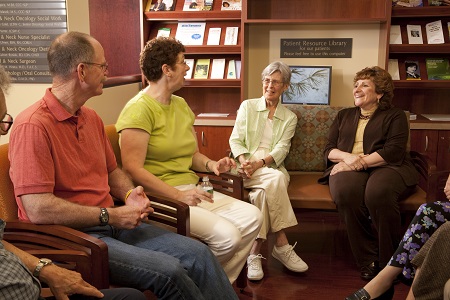
Head and Neck Cancer Support GroupSupport groups have been proven to be an important component of wellness. In the last decade, research has shown that membership in groups improves overall quality of life. Psychological distress is reduced with ongoing participation. Groups provide in informal and supportive atmosphere in which to share common treatment experiences, coping strategies and feelings.
At the Dance Center there are two groups, each with a different focus. The groups seek to provide education and information about the disease along with a forum for open discussion. Patients may attend more than one group. Caregivers, family members, and significant others are welcome (and are encouraged) to attend.
The Patient & Family Support Group
The group is open to patients who have been diagnosed with cancer of the head and neck, their family members and significant others. The group is co-led by the Center's Social Worker and Head & Neck Rehabilitation Nurse in an effort to provide a supportive atmosphere in which to share feelings associated with your diagnosis. All meetings are held in the Physician's Pavilion East Conference Center on the third floor (main floor) of Physician's Pavilion East at the Greater Baltimore Medical Center. Dress is comfortable and casual, and beverages are served.
Meetings are the third Tuesday of every month from 7 p.m. to 8:30 p.m.
Cancer Survivor's Guide to Nutrition: Lecture Series
As cancer treatment continues or comes to an end, you may wonder what foods you should be eating. It may be time to develop new lifestyle behaviors in regard to nutrition and physical activity. Join in for a monthly lecture and discussion on the importance of nutrition and physical activity in cancer recovery and prevention. Each month, a new topic is discussed. Topics range from choosing whole foods, sugars and sweeteners, understanding food labels and nutrition claims, use of supplements, etc. This is a free patient service open to patients and family members of the Milton J. Dance, Jr. Head and Neck Center and the Sandra and Malcolm Berman Cancer Institute and Breast Center at GBMC. Light fare and refreshments are served and parking is complimentary. To reserve your spot, please call: Keri Ryniak, RD, CSO, CNSD at 443-849-8186.
Nutrition
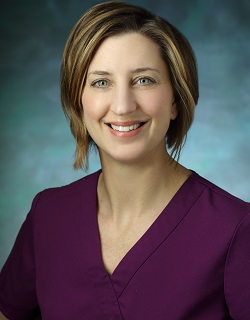
As cancer treatment continues or comes to an end, you may wonder what foods you should be eating. It may be time to develop new lifestyle behaviors in regard to nutrition and physical activity.
For more information call Keri Ryniak, RD, CSO, CNSD at 443-849-8186.
Nutrition Recommendations
Eating is essential to living. Calories from food supply the brain and body with energy. Protein keeps the muscles strong and fat provides energy and protects organs. Fluids, vitamins, and minerals allow the body to function at its best. Each person's unique caloric and nutritional needs may increase during times of growth, activity, stress and illness.
Head and neck cancer patients have specialized nutrition needs. The presence of a tumor may change the body's nutrition requirements and/or the way the body uses nutrients. These changes may also cause changes in appetite or eating patterns because of pain, difficulty chewing or swallowing.
Proper nutrition during cancer treatment is important to maximize functional status and quality of life. Research has suggested that patients who are malnourished and experience weight loss have a greater risk of hospitalizations, increased treatment side effects, and reduced quality of life. Maintaining an adequate intake will help prevent these negative effects of cancer treatment.
Nutrition Goals During Treatment
Goal 1: Consume adequate calories to maintain body weight.
Goal 2: Choose high protein foods such as eggs, beef, chicken, fish, cheese, beans and nuts.
Goal 3: Add snacks in between meals if needed to increase calorie intake.
Goal 4: Choose commercial liquid supplements, shakes, or smoothies as a meal replacement or snack.
Goal 5: Meet daily fluid needs - about 60-70 ounces each day.
If you cannot meet these recommendations or have further questions, please contact me for a personalized nutrition evaluation and consultation.
